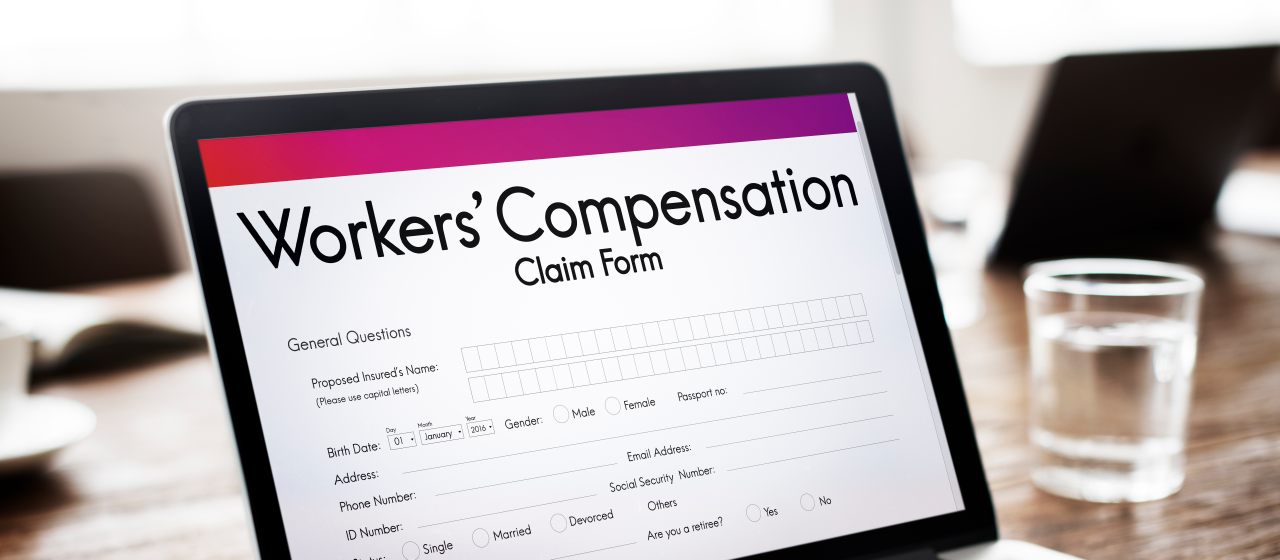5 Things You Need to Know About Workers' Comp
Getting injured on the job can be a harrowing experience. You have to deal with the injury itself, navigating your employer’s rules about which doctor to see, lost wages due to your injury, and more. Things can be even more complicated if you end up permanently incapacitated and unable to get back to your regular work duties. This is especially true when it comes time to file a claim for workers' compensation.
If you, or a loved one, have been injured on the job, you may be wondering:
- At what point should I hire a workers' comp lawyer?
- Is it even necessary in my situation to hire a workers' comp lawyer?
- Won’t my job provide everything they can to cover the costs of my injury?
The answers may surprise you. Here are five things you should be aware of as you navigate the various aspect of workers' compensation.
1. Will workers' comp offer me a settlement?
Maybe. However, there is no requirement for your workers’ compensation insurer to offer you a settlement. If you are pursuing action on your workers’ compensation claims through your workers’ comp appeal board or having it litigated in state court, they may offer you a settlement as a means of avoiding that legal pursuit.
Taking the Workers' Comp Settlement vs. Waiting
One reason you might wish to consider a settlement is that if you lose your case in court, you may end up with very few benefits or nothing at all. On the other hand, you might win more from the case than you would have received through the benefits outlined in your workers' compensation policy. In either case, you may receive the money as a lump sum or broken out as a structured settlement.
Before accepting any settlement, you may want to wait until a doctor has certified that you’ve reached maximum medical improvement (MMI) concerning your injuries. MMI means that further medical treatment will not improve your condition. Waiting until this point is important because your insurance company will no longer cover your medical procedures once you receive any settlement. Responsibility for those charges fall to you going forward, so you want to be sure you won’t be hit with unexpected charges for additional treatments once you’ve finalized your settlement.
2. When does workman's comp start paying?
Florida law requires workers to report their injuries to their employer within 30 days of the initial incident. Not doing so risks denial of your claims. Employers must then report the injury to the insurance company no later than seven days after receiving notification. Three days from that date, you should receive an information brochure from their insurance company outlining your rights and responsibilities, along with other relevant information about the workers’ compensation laws in Florida.
Your medical provider should file any claims to your workers’ compensation insurance, who must then consider the claims based on the terms of their policy. Benefits for workers’ compensation should start paying out 14 days after you reported your injury. The checks are paid bi-weekly and amount to 66% and ⅔ of your average weekly wage during the 13 weeks before you were hurt while you remain totally disabled, and up to 64% while partially disabled.
If you were working less than 75% of the time during those 13 weeks, the weekly wage of employees in a similar line of work who worked 75% is used to calculate your benefits.
3. Can you work while on workers' compensation?
Workers’ comp benefits are designed to provide compensation while you are unable to perform your regular duties. However, you can take a second job or perform any other type of employment during a pending workers' compensation claim. If you return to work or acquire another job during that time, you do have a duty to report all earnings to the insurance carrier, which will reduce benefits payable per a mathematical calculation.
Your doctor may clear you to return to work performing light duties. Keep in mind that only your employer can determine whether they have these types of positions available. The workers’ compensation carrier accepts the word of the employee on these matters. It is up to the employer to communicate the information to the insurance carrier. Your lawyer should make sure the insurance carrier has been provided this information from your employer.
4. When To Hire A Workers' Comp Lawyer

In many circumstances, it might be best for you to consult with an attorney regarding your workers’ compensation case. Here are some common situations where you should consider speaking with an attorney:
- Your employer has denied paying your claims
- Your employer is slow in providing you with benefits
- Your employer makes a settlement offer that doesn’t cover the cost of your lost wages and all of your medical bills
- Your medical issues prevent you from returning to your prior job
- Your medical issues limit what you can do at work
- Your medical issues keep you from finding any other type of employment
- You are planning to file for Social Security benefits and worry that the structure of your workers’ compensation settlement might lower your benefit payments
- You feel your employer is retaliating against you in response to your filing of a workers’ compensation claim
- You were injured on the job due to the actions of a third party
- You were injured on the job due to misconduct by your employer
How a Workers' Comp Lawyer Will Help
Your attorney can assist you by helping you meet all critical deadlines for filing paperwork. They can also be a big help in gathering evidence to support your claim, negotiating with the workers’ compensation insurance company on your behalf, and writing out your settlement agreement in a way that helps you avoid unintended consequences. If an agreement cannot be reached with your insurance company, your attorney can prepare you for and represent you at trial to pursue any benefits being disputed by the employer or carrier.
5. Florida Workers' Compensation Rules
Here are some rules you should be aware of when it comes to workers’ compensation in the state of Florida:
- You do not get paid for the first seven days of your disability. If you end up losing time due to your disablement lasting longer than 21 days, your insurance company must opt to compensate you for those initial seven days.
- You can report your injury directly to your workers’ compensation insurance company.
- You can receive Social Security and workers’ compensation benefits at the same time. The combined compensation received cannot exceed 100% of what you averaged in earnings before you were injured.
- Reemployment assistance is available for eligible workers' to assist in transitioning to a different field if your injuries prevent you from returning to your previous job.
- While enrolled in reemployment assistance you may be eligible for an additional 52 weeks of workers' compensation benefits.
- In some circumstances your employer may have to hold your job open for a limited period depending on the applicability of FMLA and the ADA.
Make sure you understand your rights as they pertain to workers’ compensation under Florida law.
Hiring a Workers' Comp Lawyer
If you've been injured at work, you need a workers' comp lawyer with extensive experience litigating workers’ compensation claims and settlements in order to get the best outcome for your claim. Call us today at 386-222-6677 to schedule a free consultation and find out how we may be able to help you get the workers' compensation settlement you deserve.
 Start Your Case Online
Start Your Case Online
- 200+ Years Combined Legal Experience
- 24/7 Support
- Top Rated Criminal, family, and Injury Attorneys
- Call Today 386.222.6677